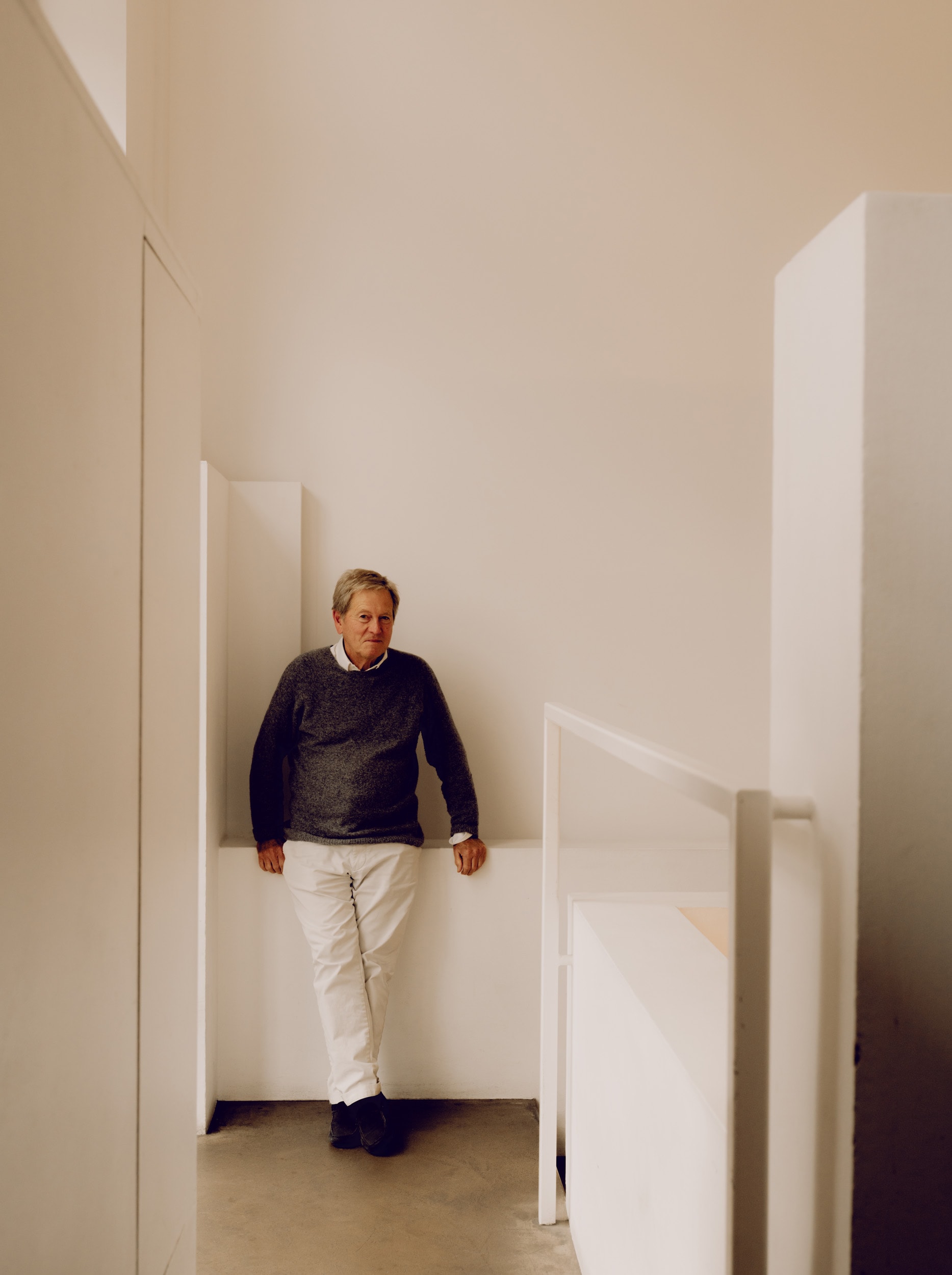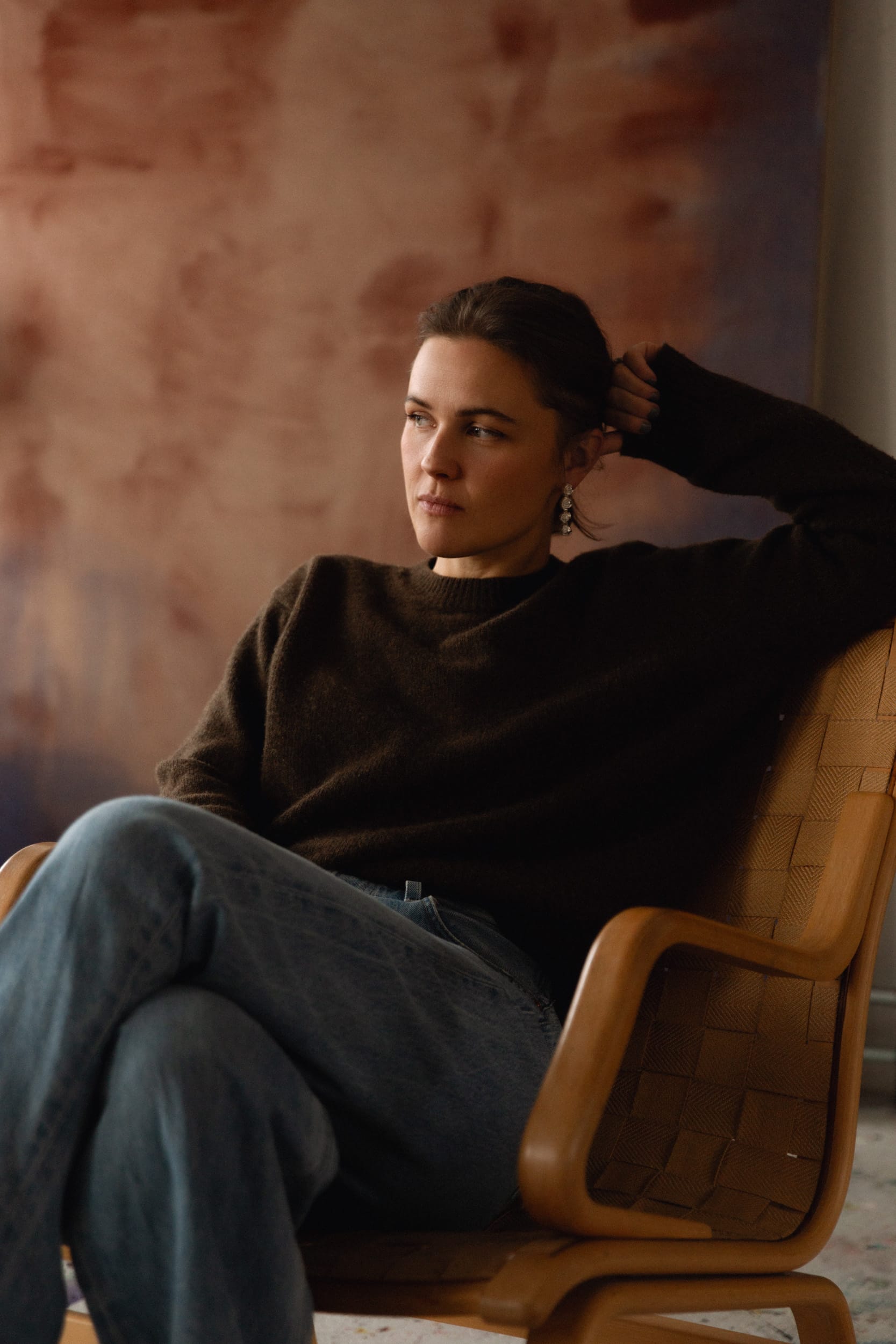Pico IyerAcclaimed travel writer and author, Pico Iyer, speaks on how travelling the world can start with a simple step back.
Pico IyerAcclaimed travel writer and author, Pico Iyer, speaks on how travelling the world can start with a simple step back.

“Travel lays the table for the feast you enjoy sitting still back home”
Born to Indian academics, raised between the UK and the US and having lived in rural Japan with his Japanese wife for two decades, Pico Iyer is quite the globe-trotter in both his home and work life. As a regular essayist for Time, The New York Times and Harper’s and the author of 10 books—ranging from Video Night in Kathmandu to The Global Soul: Jet Lag, Shopping Malls, and the Search for Home—Pico has seen the good, the bad and the ugly, ugly airport carpets. But it’s not all foreign street signs and cultural immersion. Through spending much of his year hopping between countries, he has developed an appreciation for travel’s opposite: stillness. We speak to Pico about his most surprising discoveries on the road and the upsides of belonging to a global community of nomadic world wanderers.
What is the connection between travel and quality of life?
The beauty of the global world is that you can get the same benefits of travel while at home or in the nearest big city. Your classroom or workplace is probably filled with people from Vietnam and India and Iran and Mexico, so you can now travel the globe just by walking down the street. In that regard, physically going around the world is less important than it ever was, except insofar as it takes you out of your comfort zone. But I’d say that travel can be a fine way to learn humility and how much you don’t know.
Of all the exotic and far-flung places you have visited, which has felt the most immediately like home?
I’ve answered that with my feet by coming to live in Japan. Even when I was a little boy, I would only have to see a painting by Hiroshige in a museum or read a 10th-century Japanese poem to feel that I recognized them: They went through me with a piercing sense of familiarity that made me feel, “I know these places better than the house I grew up in or the place I live in now.” So at the age of 29, I decided to pack up my things, quit my glamorous-seeming job in Midtown Manhattan, abandon my apartment on Park Avenue and move to a single room on the backstreets of Kyoto without its own toilet or telephone. It’s the one decision I’ve never regretted. I believe that many of us have these secret homes—faraway cultures with which we feel a strong affinity, even though we have no official connection with them. But the beauty of the present moment is that we can visit these places as never before and, if we’re lucky, even make our homes in them. If my grandfather had felt a kinship with Japan, he might have been able to read about it in a book; in my father’s generation, he might have been able to save up for a single visit. But nowadays, we can inhabit the place that makes the most sense to us and the one from which we most wish to learn. It’s not a privilege I ever take for granted.
Which element of a culture do you feel best encapsulates it, such as the food, dress, architecture or language?
The body language, perhaps: I love sitting in a café and watching people walk past. Within seconds, just from the colors, the noises and the way groups form, you know whether you’re in Italy, India, Bolivia or Japan—except that these days if you live in Toronto, San Francisco, London or Paris, many of the people walking past will be from Italy, India, Bolivia and Japan, importing their own sounds and rhythms into a fresh urban mix. Even home is much more exciting than it used to be.
What has traveling taught you about balance?
Simply put, I have to be still in order to be moved. When I’m running around, I’m gathering materials such as experiences, emotions and visual stimuli, but to begin to make sense of them—to begin really to live with them—I have to be in one place, undistracted. I keep revisiting these trips, seeing them in new lights and finding new applications for them in my daily life. Travel lays the table for the feast you enjoy sitting still back home. Stillness is the end point of any trip; it’s the way you convert sights into insights and bring the experience (in every sense) home.
What can living in a different culture to the one you’ve been brought up in teach you about how the world works and your place in it?
I think living in a foreign place just shows you how there are no right answers and that everything you think you know is partial, provisional and local. Sometimes when I’m at home—whether that home is in Japan or California—I begin to think I know what human life, reality and emotion all are. Then I’ll mentally take myself back to North Korea, and within half an hour I’ll see that everything I think of as universal and true doesn’t begin to apply to people in these very different circumstances. My notions of the world are not just subjective, but fairly blind. Some people laugh at the North Koreans for not knowing much about how other cultures live, but I’m not sure we’re much better. And we—unlike they—have no excuse for not knowing the world, given our relative freedom of movement and information.
You often speak about enjoying feeling like an outsider. What freedom do you feel it gives you?
On a very superficial level, the outsider enjoys all the benefits and beauties of a foreign culture without having to pay the taxes. Here in Japan, I can wander around like a perpetually enchanted—and bewildered—tourist without being subjected to the pressures and the often-paralyzing social responsibilities of my Japanese friends and neighbors. A traveler enjoys a makeshift kind of diplomatic immunity. But the deeper freedom, I hope, is that of not being stuck inside a particular perspective, or thinking that your way is the right way. I worry sometimes that in an age when we’re lucky enough to have access to more cultures (and therefore more points of view and mind-sets) than ever, it’s easier to surround yourself with people who think and look just like you. Being an outsider can protect you from that affliction.
How are our views of different cultures changing? Are we moving toward being one multinational people?
I think we are, whether we like it or not, if only because most people I know, especially in large cities in the affluent world, have friends, colleagues, neighbors and even spouses from radically different cultures. The number of people living in countries that are not their own already comes to over 230 million—four times greater than the populations of Australia and Canada combined—and is increasing so quickly that in a few years there’ll be more of us unplaceable souls than there are Americans. At the very least, we know a little more than we used to about other ways of thinking.
When you want to feel comforted—the opposite of adventurous—what do you enjoy doing?
I’ve always loved movies, and I will never say no to any sporting event, ever. In Japan, I often love turning out the lights while I’m waiting for my wife to come home and just listening to some music: soothing music sometimes, such as Bach, Leonard Cohen and Sigur Rós, but often not-so-soothing music, such as Green Day or The Clash. My ultimate comfort food, as you will have guessed already, is tea—my English upbringing and my Indian genes perhaps intensify that connection. Every year when my wife asks me what special treat I would like for my birthday, I give the worst and least generous answer possible: a plate of corn and a cup of tea. I can’t help it; growing up in England in the 1960s and 1970s meant my taste buds were surgically extracted at birth. There, the equivalent of therapy, open-heart surgery and radiation are all known as “a cup of tea.”
How has your notion of home changed over time?
I think my notion of home—as a collage, a work-in-progress, a stained-glass whole made up of all the many places that have formed me—has been pretty much the same all my life. What made this clear to me with particular vibrancy was when my family home in California burned down in a forest fire, and I lost every last thing that I owned. That showed me, unquestionably, that whatever sense of home I had would have to be portable, invisible, internal. The only home that could sustain me would be whatever I carried around with me, whatever my circumstances—my friendships, my values and my passions.
Pico Iyer’s latest book is The Man Within My Head (Vintage, 2013).



